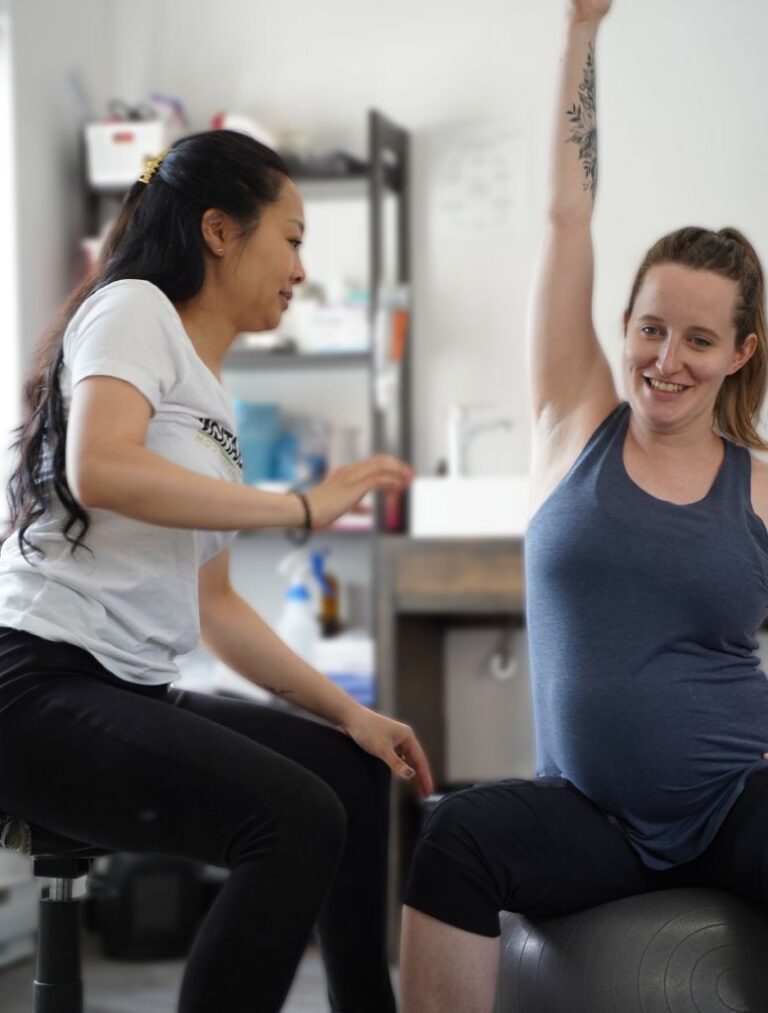Perineal and pelvic rehabilitation (PPR) is a crucial discipline in physiotherapy, aimed at treating many conditions involving the pelvic floor muscles. Often misunderstood, this practice is aimed at people of all ages (children and adults) and genders: male, female, transgender or non-binary. Indeed, perineal problems are not exclusively linked to a specific gender.
(Stability of the abdominal and pelvic girdle)
The pelvic floor muscles, and all the muscles in the human body, can be weak and lack motor control or be
too contracted/tensioned. Just like the others, they deserve to be treated when necessary to make them stronger or more relaxed.
– Incontinence (urinary or fecal)
– Menopause
– Constipation
– Pelvic or genital pain (vaginismus, dyspareunia, clitoridynia, etc.)
– Pre- and post-natal rehabilitation
– Pelvic organ descent
– Endometriosis
– Vulvo-vaginal diseases (e.g. lichen sclerosus)
This list is not exhaustive; there are many other conditions that may require consultation in perineal and pelvic rehabilitation.
– Erectile dysfunction
– Overactive bladder
– Pelvic pain and/or surrounding area
– Urinary and intestinal dysfunction
– Rehabilitation after trauma (sports injuries, accidents affecting the pelvic region)
– Following surgery (e.g. after prostatectomy)
This list is not exhaustive; there are many other conditions that may require a consultation in perineal and pelvic rehabilitation.

At your first appointment, your physiotherapist will assess your condition and develop a personalized treatment plan to meet your specific needs.
The session will begin with an in-depth discussion, during which the therapist will seek to understand your situation, symptoms and personal goals.
The physiotherapist may also perform a variety of physical tests to examine such things as muscle strength and flexibility, hip and pelvic mobility, and general posture*.
After this initial assessment, your physiotherapist will explain your condition in detail and suggest a treatment program, which usually includes in-clinic sessions, home exercises and practical advice for your daily life.
Appointments are always held in a private room, ensuring privacy and confidentiality.
*In some cases, an internal examination (vaginal and/or anal) of the pelvic floor muscles may be necessary to assess their capacity for contraction and relaxation, their strength, endurance and flexibility, and to detect any tensions.
This examination can be carried out at the first consultation or at subsequent ones.
Despite persistent taboos, it’s crucial to address these health issues. Many are unaware that solutions exist, such as perineal or pelvic re-education.
To raise awareness, we’re offering a FREE 15-minute PHONE CONSULTATION for those in need of perineal rehabilitation.
Contact us for more information!
